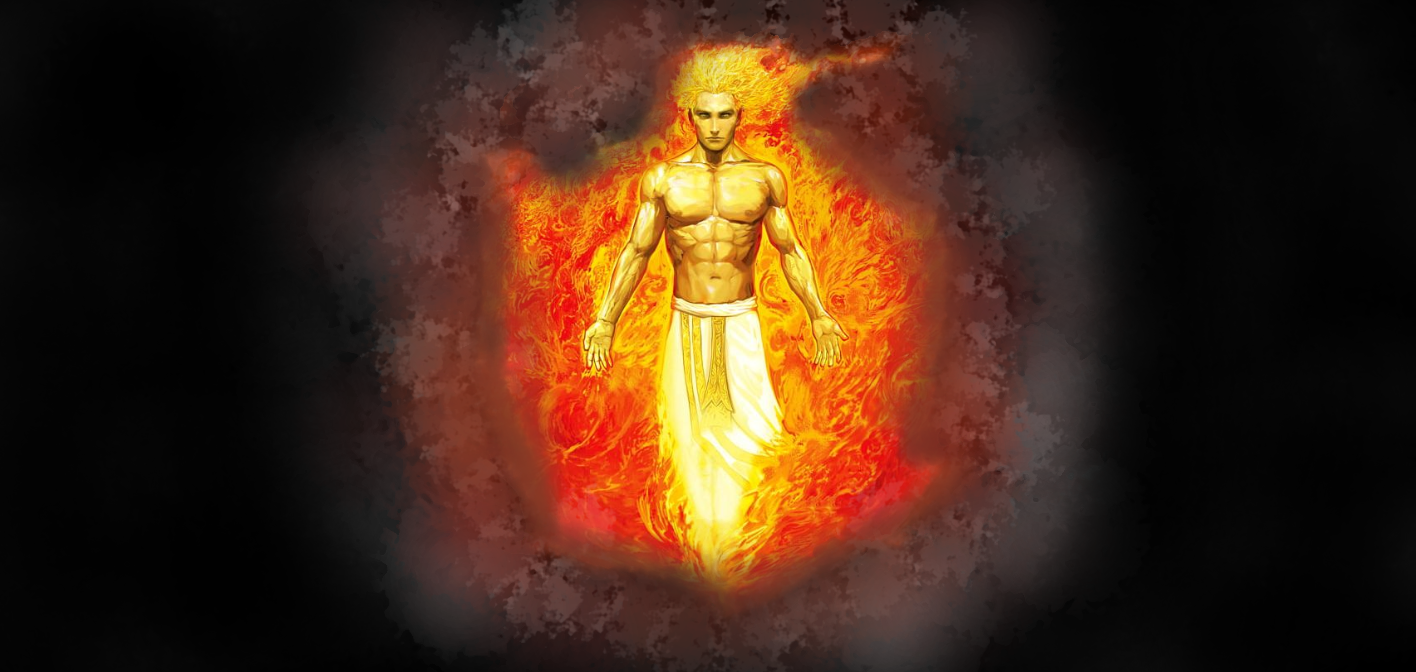The Worship of Dianecht
The Light Lord, The Sun Lord, Lord of Light.
Dianecht is the deity of the sun and its lifegiving force. He governs the cleric domains of Life, Light and Order. His personal Plane, and the afterlife to which his followers are welcomed, is The Sunlit Plane.
History
Followers of the Light Lord believe he was created at the moment the sun first ignited. It is likely there is some truth in this, as Sun worship is among the most ancient religious practices, however the Sun Deity of the very earliest days of sentient life is unlikely to have borne much resemblance to the Dianecht worshiped by millions today. The most likely origin for the Light Lord as his current self is the development of ritualised healing magic as practiced by Clerics, which is still an incredibly ancient practice albeit not quite as ancient as the birth of the Sun. The Most Ancient Ashurbanoth, golden dragon of Raad, claims to have witnessed the emergence of Dianecht personally.
Dianecht rose to prominence as the supreme deity of Nerevarn when King Gabraeil, the first King, swore himself and his descendants forever to the service of Dianecht. Although it was not compulsory for citizens of the Monarchy to worship him, most did. Since the founding of the Republic a century ago, there has been a gradual decline in the committment of the nation to Dianecht above all else, although he is still by far the most worshipped deity within Nerevarn.
Execution
Worship of Dianecht is mostly performed informally - that is, without the performance of a specific ceremony - by acting in accordance with his will, namely:
- Obeying the law
- Oathkeeping, and a commitment to keeping one's honesty
- The practice of healing magic
- Abjuring the undead
- Avoiding a lust for personal power
- Defeating evil
Components and tools
The main method of offering to Dianecht is making burnt offerings to the flames. This is often done in sacred Eternal Flames kept permanently burning in temples or the homes of the most devoted, but can be done at any fire if the worshipper dedicates the offering. The offerings which please Dianecht most are those which carry symbolic or actual value to the worshipper, and are regarded as contracts if such an implication is reasonable - for example the burning of a lock of hair from a lover would be regarded as committing to conduct the relationship within the moral code commanded by the Light Lord.



Comments